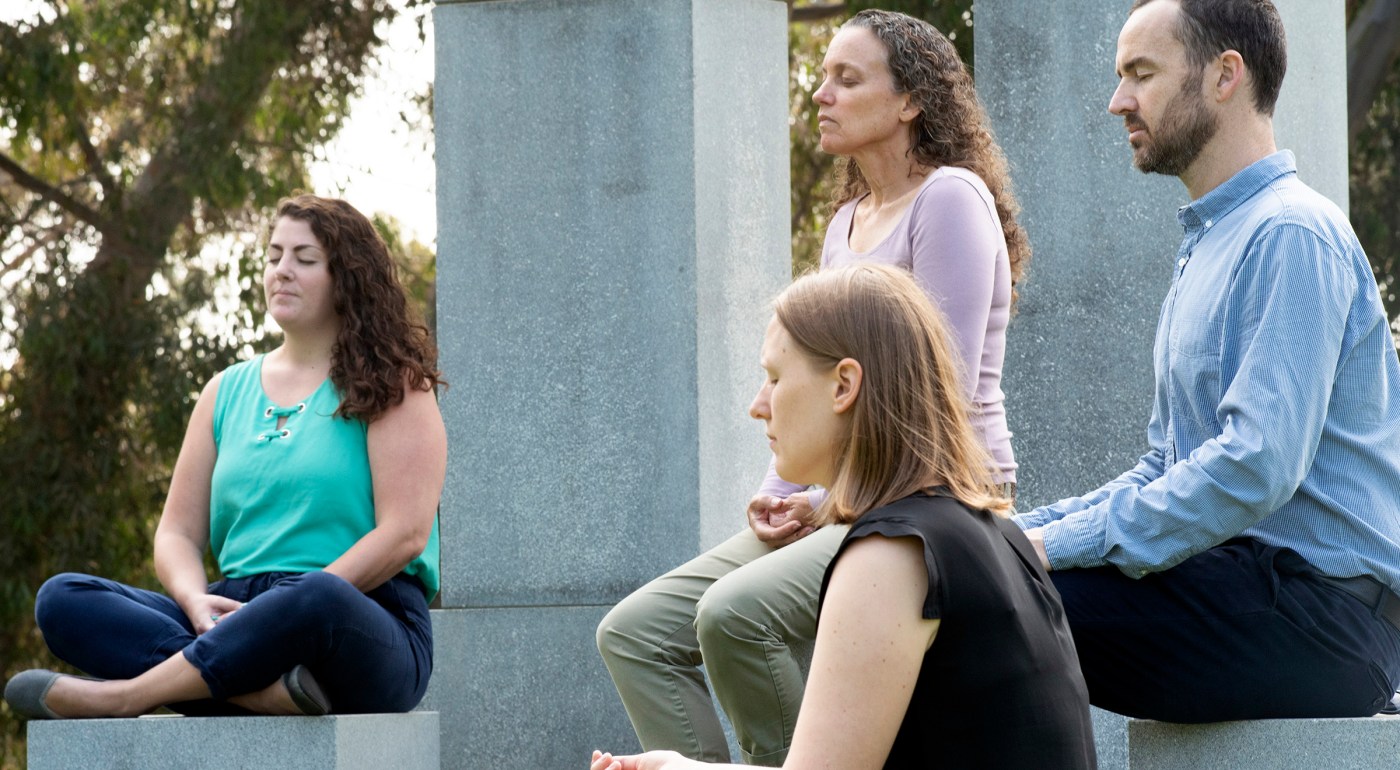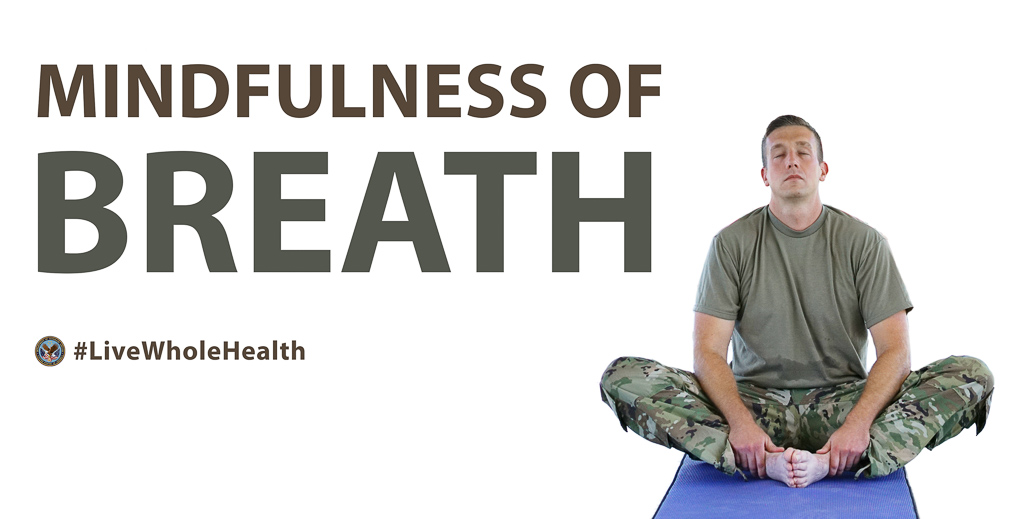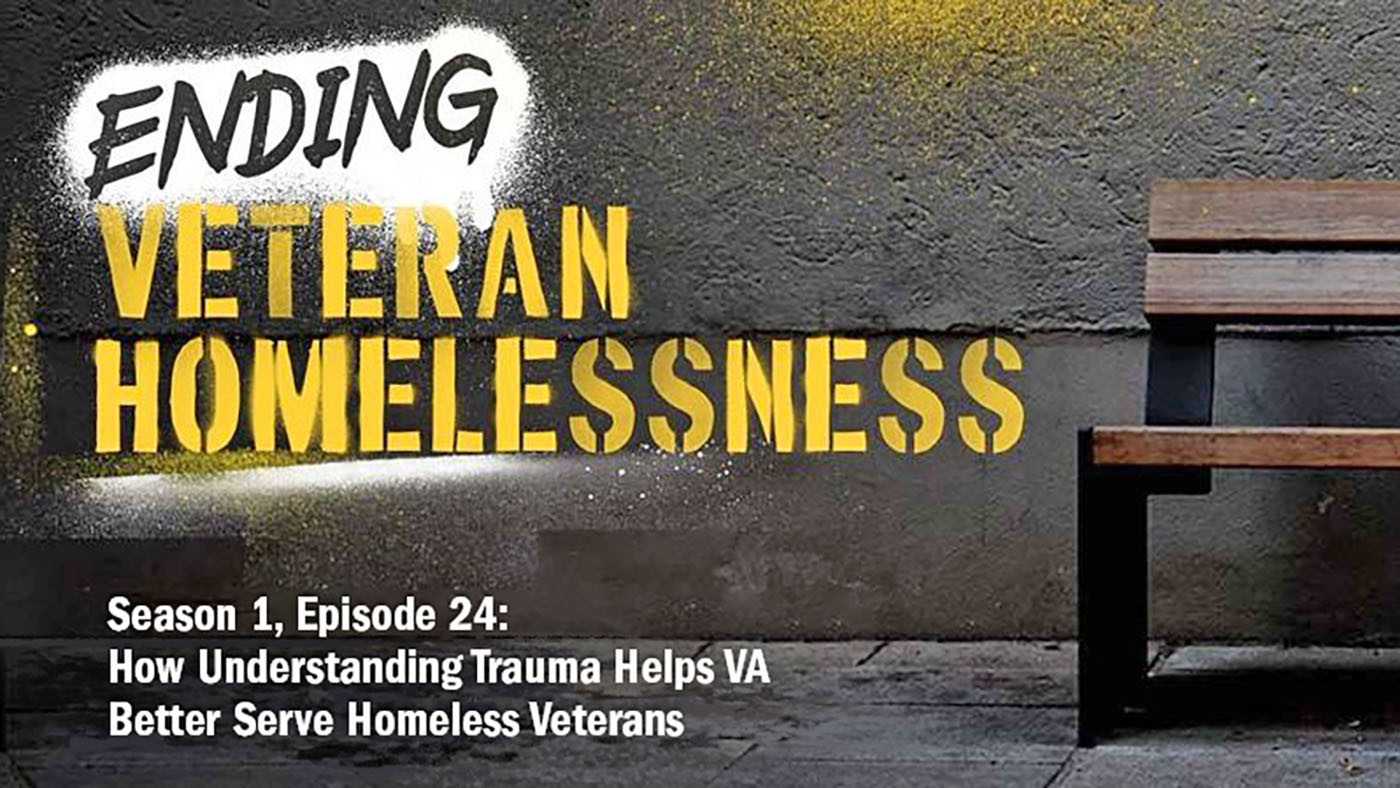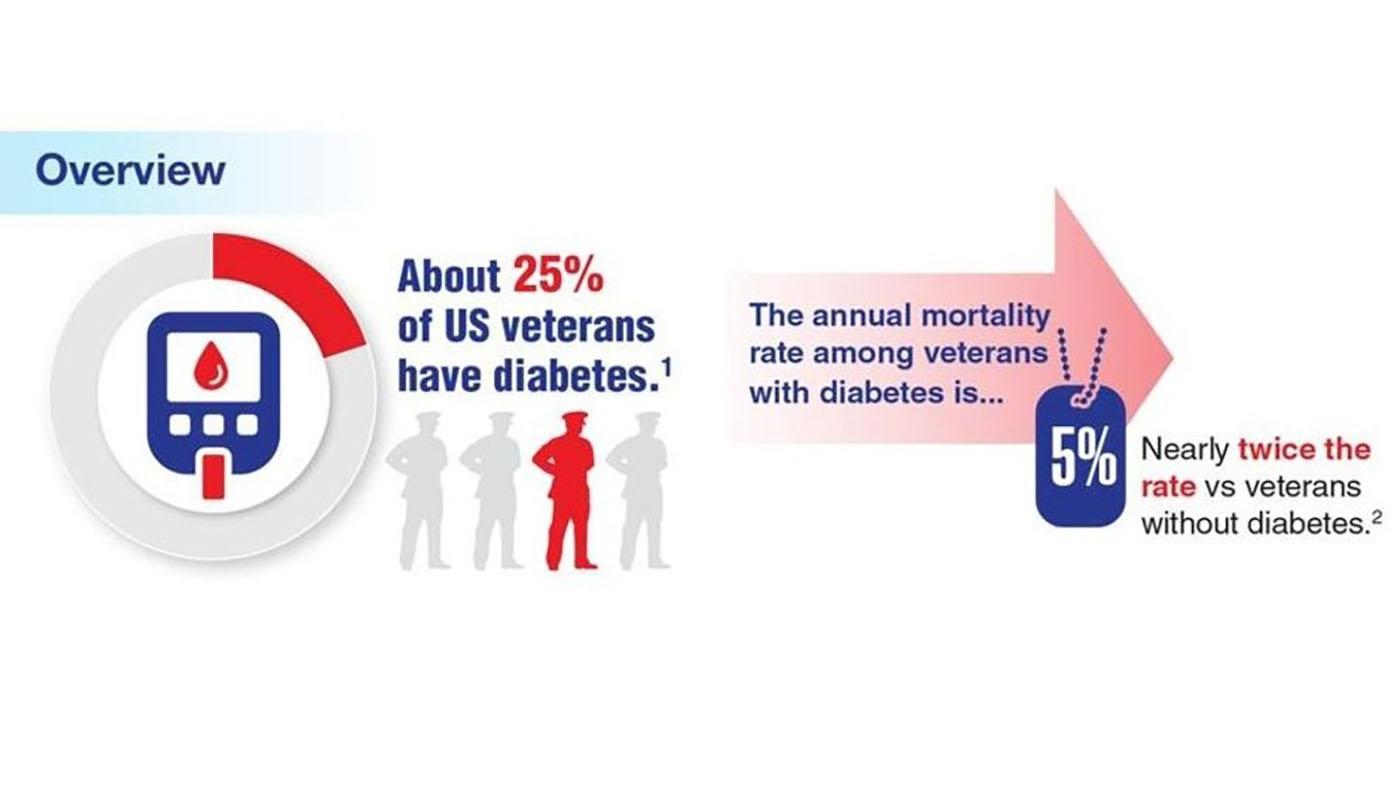Meditation has been linked to a number of health benefits, including decreased anxiety and lower cardiovascular risk. But research on the potential benefits of meditation for patients with PTSD has been inconclusive. Veterans interested in meditation are advised to try different types to see which one is most helpful.
What about loving kindness meditation?
A VA study found that a 12-week course of loving kindness meditation was just as effective as one of VA’s front-line treatments – cognitive processing therapy (CPT) – for treating PTSD.
Loving kindness meditation involves a silent repetition of phrases intended to elicit feelings of kindness for oneself and others. It uses mindfulness techniques to teach people skills to disengage from self-criticism and negative thoughts.
The results appeared in the journal JAMA Open Network in April 2021.
Researcher learned from Buddhist teachers
Dr. David Kearney, a gastroenterologist with VA Puget Sound Health Care System, led the study. He’s now retired from VA but is a professor emeritus at the University of Washington.
He has learned from many Buddhist teachers and thought loving kindness meditation, which comes from the Buddhist tradition, could help Veterans with PTSD.
“PTSD is characterized by distressing emotions, images and memories, often accompanied by what psychologists call hindsight bias, the belief that you could have done something differently to avoid the traumatic event,” Kearney said. “I thought loving kindness practice might be able to help people with PTSD relearn self-compassion in the face of negative emotions like guilt and self-blame.”
In the study, 184 VA patients with PTSD were divided into a loving kindness group and a CPT group.
CPT teaches one to evaluate the upsetting thoughts that have existed since trauma, with a focus on changing how you look at yourself and the world.
Therapists teach skills that help a person decide whether there are better ways to think about trauma.
Meditation teachers coach Veterans on loving kindness
The two groups met once a week for 12 weeks. The researchers then used a standard test measuring the severity of PTSD symptoms to evaluate the participants.
When compared, the two groups showed no meaningful differences in PTSD symptom severity scores.
The scores for patients in both groups improved by 8 to 10 points, meaning both programs resulted in a clinically measurable improvement.
But the effects were often modest, with about 40% of the people in each cohort experiencing a clinically meaningful level of symptom reduction, Kearney said.
Experienced meditation teachers coached the Veterans in the loving kindness group. The instructors followed the practice of Sharon Salzberg, a renowned teacher of Buddhist meditation in Western countries.
Pave the way for more widespread use
They begin by silently repeating phrases of goodwill for themselves, such as, “May I be safe. May I be happy. May I be healthy. May my life unfold with ease.”
“As you practice, you begin to extend the phrases to others, from those who have helped you to the difficult people in your life,” Kearney explained. “Participants would practice in class for 30 to 35 minutes and follow with a discussion. They were also asked to practice at home. Our hope is that our study of loving kindness meditation for PTSD will be independently replicated. That would help pave the way toward more widespread use of this treatment option.”
Topics in this story
More Stories
Discover the power of your breath! Explore how mindful breathing can bring peace, ease your mind and enhance clarity in this week's #LiveWholeHealth video.
A unique program at Boston VA uses the principles of trauma-informed care to serve homeless Veterans with empathy and understanding.
Diabetes is a complex metabolic disorder with serious consequences if not managed properly. VA can help.







I’m pts challenged hypervigilant as one symptom. I’ve tried Abilify to Zoloft throw in the benzos! Firstly, I don’t capitalize pts and don’t give it a d, because it’s not a disorder! Meditation worked for me and I threw away the meds. I’d suggest learning Mindfullness first. So take that mind that’s full of self talk, ruminating stories, fear, threat, fight, flight and learn how to pause and slow the chatter just briefly to allow the brain’s chemical factory to do it’s thing and deliver the calming hormones. Here’s how I started: Sent an intention to distract your mind a bit that you are going to stare at a lit candle, real or imagined, then do it… when a thought enters, let it pass and don’t judge it! Go back to staring or gazing at the candle and see how long you can stare at the flicker before another ruminating thought comes in and repeat, don’t judge any thoughts coming in let them pass. Keep doing this and over time, you’ll be able to capture thoughts before they become feelings then emotions. The Buddas say it makes the thoughts walkable! Took me a while to get that! Stopping thoughts or slowing them, is power!
My Loving Kindness: Had a gov chief engineer say he wanted to choke me at work! I laughed in his face and thought of ways to physically destroy him which I easily could. So I, visualized his disgusting face and cast love upon it repeating the mantra Love, in my mind over, and over for weeks. Eventually, the resentment went away. While sitting at my VA psychiatrist’s office I saw some books on the shelf about meditation. After being diagnosed, pts challenged and wanting to get off the meds, I found this route to some mental freedom and relief! It does work and the mind can be strengthened, just like the body. Learn how it works and practice each night or what works for you!
Here is a great resource for more information on this topic, beyond the links provided in the article above. https://www.va.gov/WHOLEHEALTH/circle-of-health/mindful-awareness.asp
I would try this. Probably better than all the drugs.
Thank you.
I hope that any veteran with PTSD in the VA health system can be offered this treatment; hopefully even by VideoConnect! I would be one who would like to try it too. Thank you.